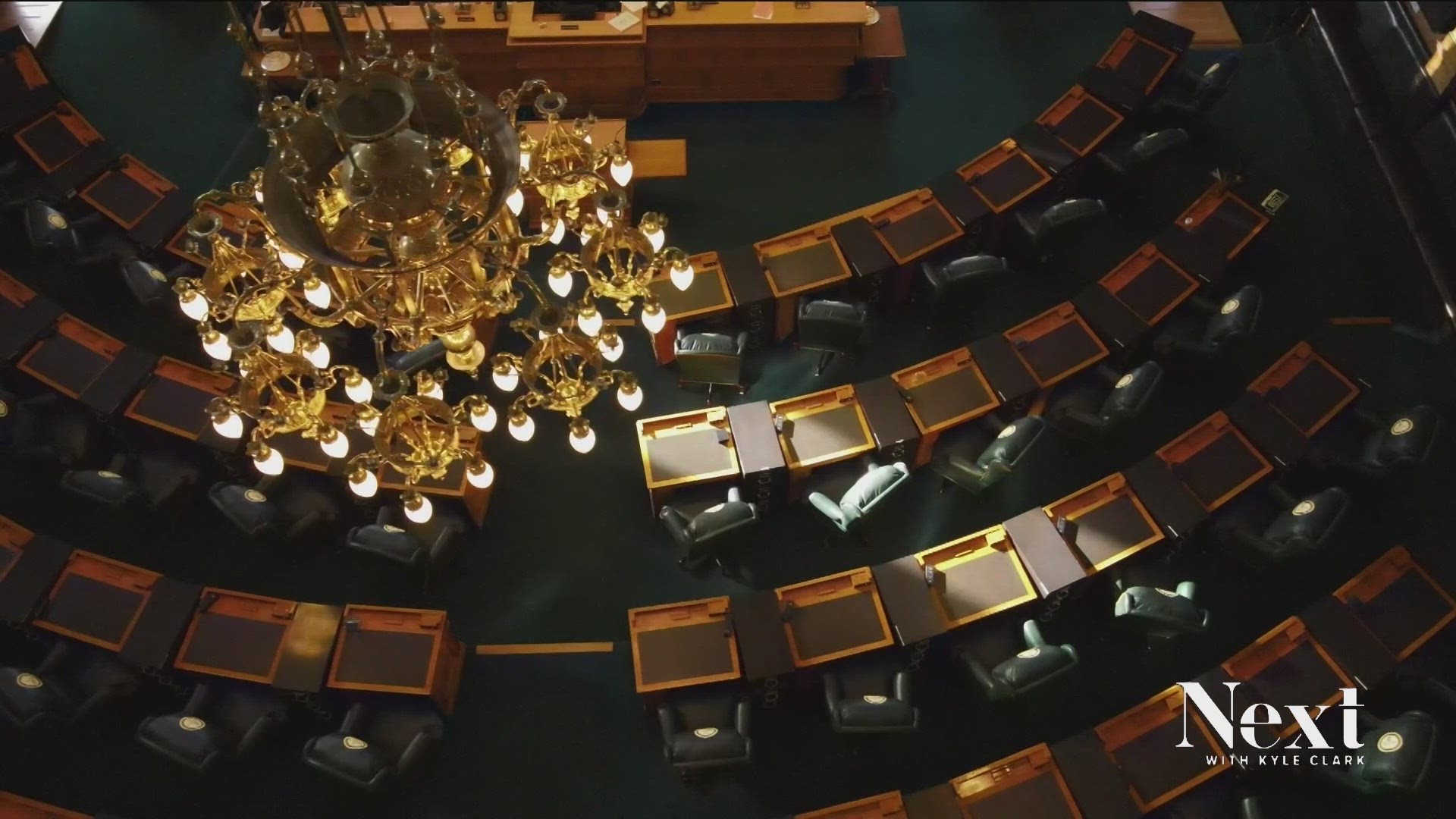DENVER — When a lawmaker resigns at the State Capitol, like Democratic State Representative Ruby Dickson did last week, their replacement is picked by a handful of party insiders.
A representative for tens of thousands of people picked by a group of dozens. Dozens!
State House districts represent about 88,000 people.
State Senate districts represent about 163,000 people.
There is a ballot proposal being considered to let voters decide instead of the party insiders, but at what cost?
Former DaVita CEO Kent Thiry is pushing three ballot proposals for November, to overhaul how Colorado conducts elections.
Two of the three proposals call for an end to vacancy committees.
Vacancy committees are the mechanism the political parties use to fill a state House or state Senate vacancy when someone resigns or passes away.
More than a quarter of the current lawmakers entered the building through a vacancy appointment and not an election, though most of them have won a subsequent election.
That includes lawmakers who represent:
- Adams County
- Akron
- Aurora
- Avon
- Boulder
- Broomfield
- Cherry Hills Village
- Commerce City
- Denver
- Fort Collins
- Greeley
- Greenwood Village
- Highlands Ranch
- Louisville
- Loveland
- Montrose
- Monument
- New Castle
- Pueblo
“While these vacancy committees are a fact of living in Colorado, we do agree that voters should be the ones picking their elected officials,” Colorado Democratic Party Chair Shad Murib said. “I think we all agree that the best type of elected official is one elected by the public.”
Murib acknowledged the flaw in the system.
The one that will have about 50 Democrats picking the replacement for Dickson next month.
“Vacancy elections are a result of us not being able to pay for special elections in this state,” Murib said.
That is where Thiry’s proposals come in.
He is pursuing ballot issues about elections that include prohibiting vacancy committees and requiring a special election.
“The current initiatives stipulate that you could have entire General Assembly sessions go by, if someone were to pass away or step aside, without a member representing that community,” Murib said.
This past year, seven lawmakers were appointed to their seat by vacancy committee.
- State Rep. Lorena Garcia, D-Adams County: 24 votes
- State Rep. Manny Rutinel, D-Commerce City: 23 votes
- State Rep. Kyle Brown, D-Louisville: 41 votes
- State Rep. Tim Hernández, D-Denver: 39 votes
- State Rep. Ron Weinberg, R-Loveland: 23 votes
- State Sen. Dafna Michaelson Jenet, D-Commerce City: 46 votes
- State Sen. Perry Will, R-New Castle: 17 votes*
*Will was appointed to the vacant Senate seat after losing his reelection bid for his House seat.
How much would a special election cost?
The Colorado County Clerks Association is working on an estimate.
Though, in 2021, county clerks had to estimate the cost of a potential gubernatorial recall effort. Dickson’s vacancy committee is in Arapahoe County. In that 2021 estimate, Arapahoe County’s total equaled $1.84 per voter. There are currently 61,000 active voters in Dickson’s district, so that would equal about $112,000 using the 2021 estimate.
Thiry was not available for an interview on Monday, but his spokesman, Curtis Hubbard, provided the following answers to these questions:
1. Why prohibit vacancy committees?
“A system in which nearly a third of the Legislature came into office via appointment by vacancy committee — often consisting of 50 or fewer party activists — is profoundly undemocratic. “
2. If special election leaves a seat empty for entirety of session, how is this a better idea?
“Our measure is better because it gives all voters a say in who represents them. It will likely reduce the number of resignations when elected officials realize their seat could be vacant for a period of time and that party insiders are no longer in control of handpicking their successors.”
3. Why is Kent Thiry concerned about vacancy committees?
“Vacancies have become commonplace and are not something that should be left to a handful of party insiders to fill. The measures we’re pursuing are about providing all voters with equal access — in this instance equal access to deciding vacancy elections.”
SUGGESTED VIDEOS: Next with Kyle Clark

